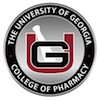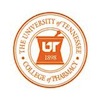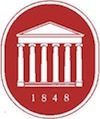Top 20 Pharmacy Schools in the South

In preparing our inaugural list of the top pharmacy schools in the South, we considered dozens of schools in the US that offered pharmacy programs. Our goal with this list is to give students access to information so they can make informed decisions about the schools they choose to attend and the programs they pursue. Our motivation for publishing these rankings is simple. We frequently receive emails from young people -many of whom are already working as pharmacy technicians- asking for advice as to which pharmacy schools they should consider. Our hope is that this list is a starting point for aspiring pharmacists to discover the schools that are the best fit for them.
The criteria we used in making this list consists, in no particular order, of the following: academic reputation, admission selectivity, depth and breadth of the program and faculty, size and scope of the pharm school class, and value as it relates to tuition. All data used on our rankings was obtained from publicly available sources.
Like any list, ours is not perfect and is open for debate. There is no single opinion that trumps all when it comes to which school is the “best”. Ultimately every student has different needs regarding the type and academic rigor of a program, campus culture, as well as cost, lifestyle, and career focus. Hence the notion that we consider these lists a starting point for aspiring pharmacists in the search for the appropriate program that meets their needs.
 1. University of Kentucky College of Pharmacy, Lexington, Kentucky
1. University of Kentucky College of Pharmacy, Lexington, Kentucky
The University of Kentucky College of Pharmacy is one of the Top Ten Pharmacy Schools in the nation by U.S. News & World Report. Established in 1870 as the Louisville College of Pharmacy, the College of Pharmacy is home to a student body that continues to lead the pack in first-time pass rates on the national licensing exam. In addition, the research faculty at the College of Pharmacy ranks fourth out of 354 institutions in scholarly activity.
The University of Kentucky College of Pharmacy offers a Pharm.D. degree and a Ph.D. in Pharmaceutical Sciences with three tracks. Tracks include Clinical and Experimental Therapeutics, Traditional Pharmaceutical Science, and Pharmaceutical Outcomes & Policy.
Resident tuition for the University of Kentucky College of Pharmacy is $12,836 per semester for full-time students and $23,307 per semester for full-time, out-of-state students.
About University of Kentucky: The University of Kentucky was established in 1865 as the Agricultural and Mechanical College of the Kentucky University. The University, which sits on a 779-acre campus, is home to 28,094 students enrolled in more than 250 academic programs throughout 18 colleges and schools.
 2. University of Florida College of Pharmacy, Gainesville, Florida
2. University of Florida College of Pharmacy, Gainesville, Florida
The University of Florida College of Pharmacy is the oldest college in the University of Florida Health Science Center. Established in 1923, the College ranks among the top colleges and schools of pharmacy in the nation. Home to 1,171 Pharm.D. and 552 M.S./Ph.D. students, the College of Pharmacy has four campus locations including Gainesville, Jacksonville, Orlando, and St. Petersburg, Florida.
Program offerings include the Pharm.D. and five areas of Graduate concentration including Medicinal Chemistry, Pharmaceutics, Pharmacodynamics, Pharmaceutical Outcomes and Policy, and Pharmacotherapy & Translational Research. The College of Pharmacy offers a variety of joint degree and online M.S. programs as well. It is one of the few colleges of pharmacy to offer a wide selection of online programs.
Joint degree programs include a B.S. in Nutritional Sciences/Pharm.D., Pharm.D./JD, Pharm.D./MBA, Pharm.D./MPH, and the Pharm.D./Ph.D. Online M.S. programs include Forensic Science, Pharmaceutical Chemistry, Clinical Toxicology, Pharmacy Regulation - Pharmaceutical Outcomes & Policy, Medication Therapy Management, and Clinical Pharmacy for International Pharmacists.
Resident tuition for the University of Florida College of Pharmacy (Year 1) is $26,687.95. The cost for Year 2 is $25,045.94, Year 3 is $23,692.30, and tuition for Year 4 is $22,833.70. Non-resident tuition is $49,826.41 for Year 1, $48,189.39 for Year 2, $46,835.86 for Year 3, and $46,052.03 for Year 4.
About University of Florida: When the University of Florida (UF) opened its doors in 1906, it had just 102 students. Today, the school is home to nearly 50,000 students and it consistently ranks among the nation’s Top Universities. In fact, the school ranked among the Top 20 Public Universities by U.S. News & World Report in 2012, and by Forbes in 2013. The University, which sits on a 2,000-acre campus, houses 15+ colleges and schools offering more than 125 academic programs.
 3. University of North Carolina Eshelman School of Pharmacy, Chapel Hill, North Carolina
3. University of North Carolina Eshelman School of Pharmacy, Chapel Hill, North Carolina
Founded in 1897, the North Carolina Eshelman School of Pharmacy is the only public school of pharmacy in North Carolina and one of the oldest in the nation. It ranks among the Top 20 Doctor of Pharmacy programs in the nation by U.S. News & World Report and it welcomes around 850 students each year.
The Eshelman School of Pharmacy offers a Pharm.D., a M.S. in Pharmaceutical Sciences with a specialization in Health-system Pharmacy Administration and four Ph.D. programs. Ph.D. offerings include Chemical Biology and Medicinal Chemistry; Molecular Pharmaceutics; Pharmacotherapy and Experimental Therapeutics; and Pharmaceutical Outcomes and Policy.
Tuition for the Eshelman School of Pharmacy is $9,731.28 per semester (residents, Fall/Spring) and $1,640 (Summer). Tuition for non-residents is $20,963.28 per semester (Fall/Spring) and $4,008 (Summer).
About University of North Carolina: Established in 1789, the University of North Carolina was the first public university in the U.S. The school consists of 17 institutions, including the country’s first public residential high school for gifted students— the NC School of Science and Mathematics. Home to 28,000 students, the University of North Carolina offers 76 Bachelor's, 108 Master's, 74 Doctorate, and four Professional degree programs.
 4. University of Georgia College of Pharmacy, Athens, Georgia
4. University of Georgia College of Pharmacy, Athens, Georgia
The University of Georgia College of Pharmacy dates back to 1903 when the school welcomed just three students that would eventually earn the Pharmacy Graduate (Ph.G.) degree. Today, the College offers the Pharm.D., and Graduate programs in Clinical and Administrative Pharmacy, Pharmaceutical and Biomedical Sciences, and Regulatory Affairs & Clinical Trials.
The College, which admits around 145 students a year, will welcome its first group of B.S. students in Fall 2013. Upon completion of the program, students will receive a Bachelors of Science (B.S.) in Pharmaceutical Sciences.
Tuition and fees for Georgia residents total $8,449 per semester and $18,449 per semester for non-residents.
About University of Georgia: The University of Georgia was established in 1785. The school, which sits on a 759-acre campus, is the nation’s first state-chartered university. Ranked among the Top 50 Public Universities by U.S. News & World Report, the University of Georgia is home to 34,475 students enrolled in nearly 400 fields and areas of study.
 5. University of Tennessee College of Pharmacy, Memphis, Tennessee
5. University of Tennessee College of Pharmacy, Memphis, Tennessee
The University of Tennessee College of Pharmacy has been around since 1898. Back then, the College consisted of just one campus in Knoxville. Today, the College of Pharmacy has two campuses—Memphis and Knoxville, and it ranks among the Top 20 Pharmacy Schools in the Nation by U.S. News & World Report.
The University of Tennessee College of Pharmacy was one of the first pharmacy schools to grant the Pharm.D. degree (1969) and one of the first to adopt the Pharm.D. as the entry-level degree (1984). The College offers the Pharm.D./Ph.D. and Ph.D. degrees in Bioanalysis, Medicinal Chemistry, Pharmaceutics, and Pharmacometrics.
Resident tuition for the Memphis campus is $10,687 for 9+ credit hours and $20,472 for non-residents. Tuition for the Knoxville campus (years 2 and 3) is $10,870.50 for 9+ credits (residents) and $20,655.50 for non-residents. Year four is $10,834.50 for residents (9+ credits) and $20,619.50 for non-residents.
About University of Tennessee: The University of Tennessee was established in 1794 as Blount College. The University has four campuses and it is home to 49,556 students. Campuses include Knoxville (main), Chattanooga, Martin, and the Health Science Center in Memphis. The University offers more than 300 degree programs and 170+ majors, concentrations, and specializations throughout 11 colleges.
 6. University of Mississippi School of Pharmacy, Jackson, Mississippi
6. University of Mississippi School of Pharmacy, Jackson, Mississippi
The University of Mississippi School of Pharmacy is Mississippi’s only pharmacy school. Founded in 1908, the School is home to more than 800 students, making it one of the largest schools of pharmacy in the region.
The School of Pharmacy offers the Pharm.D., a M.S. and a Ph.D. in Pharmaceutical Sciences with emphases in Environmental Toxicology, Medicinal Chemistry, Pharmaceutics, Pharmacognosy, Pharmacology, and Pharmacy Administration. The School also offers a B.S. in Pharmaceutical Sciences and a Pre-pharmacy program.
Tuition for the University of Mississippi School of Pharmacy varies by program, residency status, and year. Early Education and Pre-pharmacy students pay $9,292.00 per year for tuition and fees. In-state Professional Pharmacy students pay $17,898 for the first year of study, $17,588.00 for the second year, $18,996 for year 3, and $18,960 for year 4. Non-residents pay $12,776 (Early Education and Pre-pharmacy), $20,138 (Professional Pharmacy/year 1-2), and $21,984 (Professional Pharmacy/year 3-4).
About University of Mississippi: TheUniversity of Mississippi is the flagship university for the State of Mississippi. Established in 1848, the University opened with just 80 students. Today, the University of Mississippi is home to more than 21,500 students, making it the largest school in the State of Mississippi.
The University of Mississippi, better known as “Ole Miss,” sits on 2,500 acres and it offers 100+ academic programs across more than a dozen colleges and schools. The school also has four other campuses in Booneville, Grenada, Southaven, and Tupelo, Mississippi.
 7. West Virginia University School of Pharmacy, Morgantown, West Virginia
7. West Virginia University School of Pharmacy, Morgantown, West Virginia
The West Virginia School of Pharmacy of the Robert C. Byrd Health Sciences Center, was designated a “Program of Excellence” by the WV Higher Education Policy Commission in 2005. The School offers a Pre-pharmacy program, the Pharm.D., and a Ph.D. with two pathways including Pharmaceutical and Pharmacological Sciences (PPS) and Health Outcomes (HO).
The cost of attendance for the West Virginia University School of Pharmacy is $776 per credit hour or $13,968 per year for residents. Non-resident tuition is $1,843 per credit hour or $33,174 per year.
About West Virginia University: West Virginia University was founded in 1867. The school, which sits on a 1,099-acre campus, is a Top 100 Public University by U.S. News & World Report. Home to nearly 30,000 students, West Virginia University offers 184 degree programs throughout 15 colleges and schools.
 8. Mercer University College of Pharmacy, Macon, Georgia
8. Mercer University College of Pharmacy, Macon, Georgia
The Mercer University College of Pharmacy was established 1903 as the Southern School of Pharmacy. Home to more than 500 students, the College offers the Pharm.D., a Ph.D. in Pharmaceutical Sciences, the dual Pharm.D./Ph.D. degree, and the Pharm.D./MBA degree.
Tuition for Mercer University College of Pharmacy is $645 per credit hour, $1,935 per 3 credit hours, $3,870 per 6 credit hours, and $5,805 per nine credit hours.
About Mercer University: Mercer University was founded in 1833. The school, which sits on a 150-acre campus is consistently ranked among the country’s leading schools by U.S. News & World Report and the Princeton Review. Home to around 8,341 students,
Mercer University offers more than 200 programs throughout 11 colleges and schools.
 9. Campbell University College of Pharmacy & Health Sciences, Buies Creek, North Carolina
9. Campbell University College of Pharmacy & Health Sciences, Buies Creek, North Carolina
The College of Pharmacy & Health Sciences is home to more than 1,300 students and a faculty of 78. The College offers a wide variety of graduate and undergraduate programs for aspiring pharmacists. Offerings include the Pharm.D., a M.S. in Pharmaceutical Sciences, a B.S. in Pharmaceutical Sciences, and several dual degrees. Dual degree offerings include the Pharm.D./MBA, Pharm.D./MSCR, the Pharm.D./MSPS, and the Pharm.D./MSPH. The College also offers a Pre-pharmacy program.
Tuition for the Pharm.D. program is $16,200 per semester, M.S. programs are $700 per credit hour, and undergraduate tuition is $16,650 per semester.
About Campbell University: Campbell University began in 1887 as “Buies Creek Academy.” When it opened its doors, the University had just 92 students. Today, the school is home to 6,200 students. Campbell University offers 100+ degree programs, throughout seven colleges and schools.
 10. University of Arkansas College of Pharmacy, Little Rock, Arkansas
10. University of Arkansas College of Pharmacy, Little Rock, Arkansas
The University of Arkansas College of Pharmacy consists of two departments: (1) Pharmacy Practice - Division of Pharmaceutical Evaluation & Policy & Division of Northwest Campus and (2) Pharmaceutical Sciences. It is home to 481 students and offerings include the Pharm.D., and a M.S. and Ph.D. with Tracks in Pharmaceutical Sciences and Pharmaceutical Evaluation & Policy (PEP).
Tuition for the University of Arkansas College of Pharmacy is $14,020 per year for residents and $14,020 per semester for non-residents (full-time). Tuition for residents carrying nine hours or less is $701 per semester hour and $1,402 per semester hour for non-residents.
About University of Arkansas: TheUniversity of Arkansas was established in 1871. This land-grant college opened with just eight students and three faculty members. Today, the school is home to nearly 25,000 students from all 50 states and 120 countries. Ranked among the greenest schools in the country, the University of Arkansas sits on a 410-acre campus and it houses eight colleges and schools. Students have access to more than 150 majors, minors, second majors, and certificate programs.
Pages

- Facebook Like
- Google Plus One
- 126179 reads


